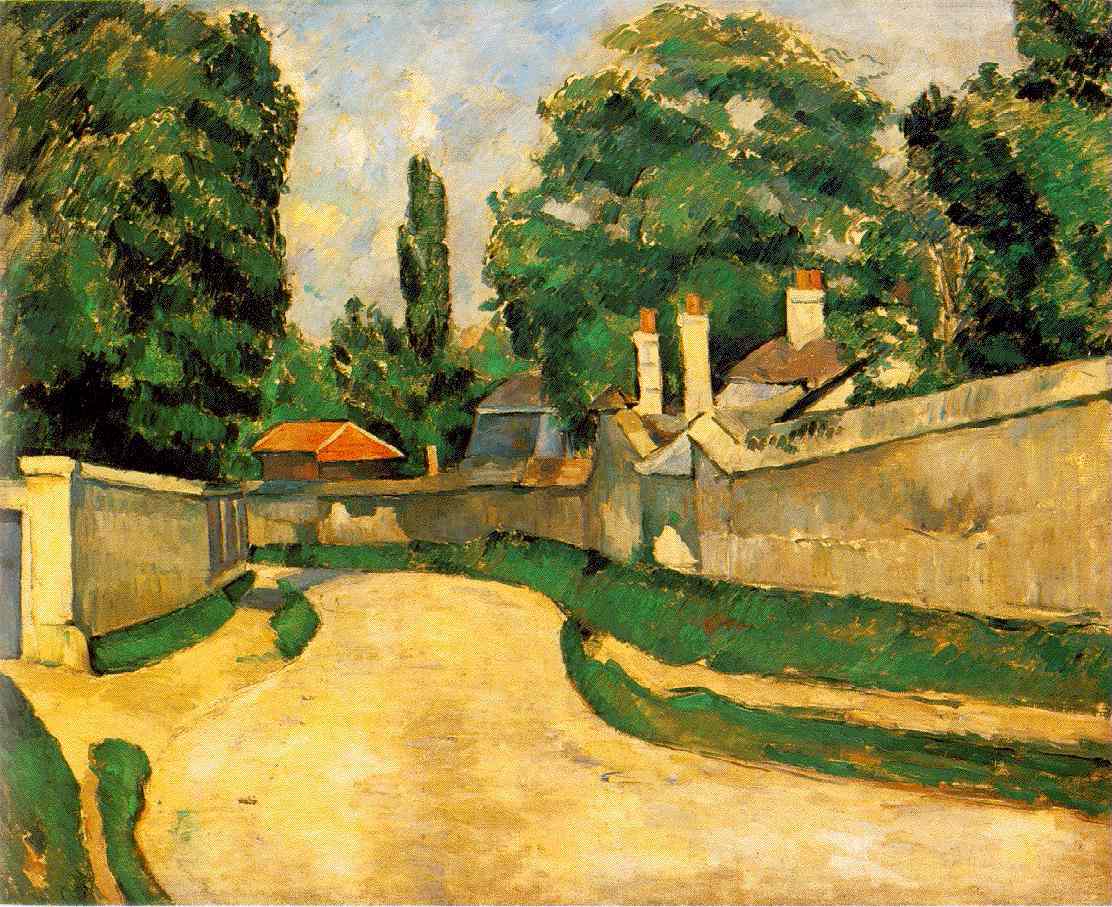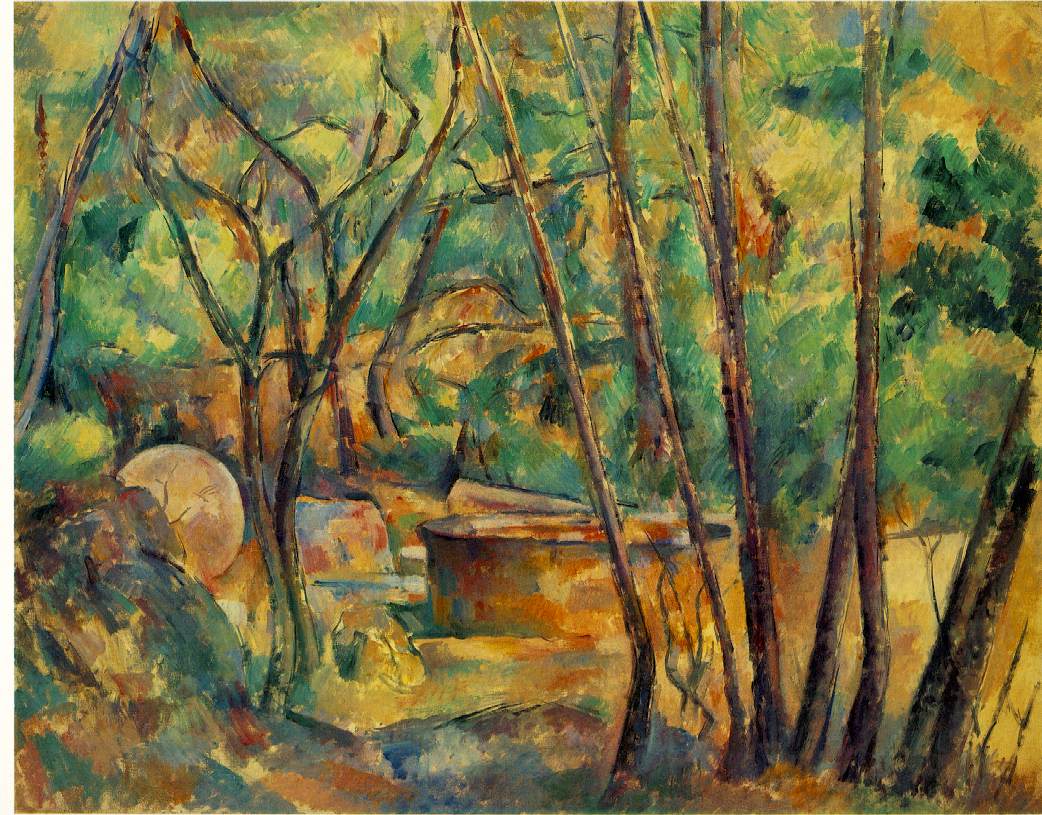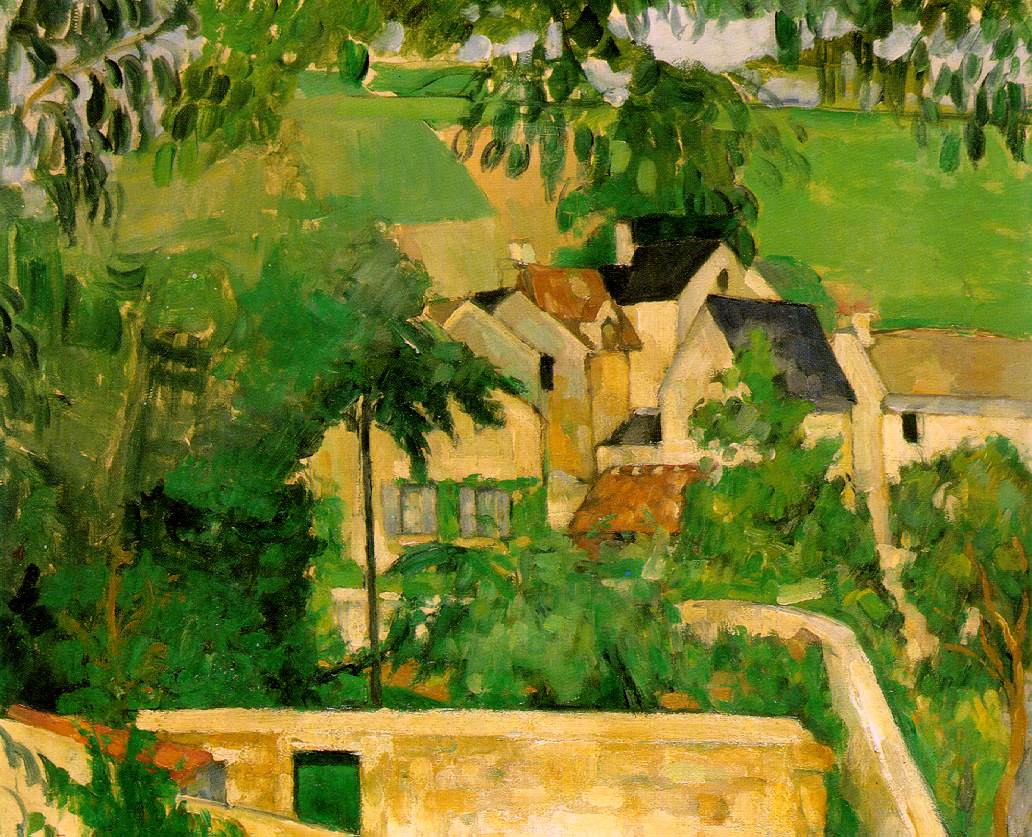http://www.bioscopemagazine.com/smf/index.php?topic=71.360
Reply to merveillesxx
I feel very glad that you like EUROPA 2005 – 27 OCTOBRE (2006, Jean-Marie Straub + Daniele Huillet, A+), so I would like to provide you some information.
1.Michael Sicinski wrote a review of this film here:
http://academichack.net/reviewsAugust2007.htm
I know about this review from Girish Shambu’s blog:
http://www.girishshambu.com/blog/2007/09/links.html
2.One thing that surprised me a lot in Sicinski’s review is this sentence—“ Europa 2005 looks at first like an actual repetition of a single two-shot sequence five times. In fact, the exact same camera movements are repeated at five different times of day. Close examination of the shadows and tint of the walls and trees reveals the subtle differences in light quality.”
I have to admit that I didn’t notice anything at all about this light changing. Reading a review like this really “opens my eyes”.
3.From Sicinski’s review, I also got to know that Straub likes Cezanne. In fact, Straub and Huillet once made a film called CEZANNE: CONVERSATION WITH JOAQUIM GASQUET (52 min, 1989). You can read more about this film here:
http://www.sensesofcinema.com/contents/06/39/straub_holderlin_cezanne.html
4.There’s a barking dog offscreen in EUROPA 2005 – 27 OCTOBRE. I have heard that there is also a barking dog offscreen in THE DEATH OF EMPEDOCLES (1987, Jean-Marie Straub + Daniele Huillet)
5.The film “THESE ENCOUNTERS OF THEIRS” (2006, Jean-Marie Straub + Daniele Huillet) can be watched online, but unfortunately, there is no English subtitle.
You can watch the film here:
http://fromtheclouds.blogspot.com/2007/08/quei-loro-incontri.html
6.I just learned from reading Doug Cummings’ website that you can read the book LANDSCAPE OF RESISTANCE: THE GERMAN FILMS OF DANIELE HUILLET AND JEAN-MARIE STRAUB, written by Barton Byg, for free online!!!!!!
Doug Cummings’ website
http://filmjourney.weblogger.com/discuss/msgReader$3671
LANDSCAPE OF RESISTANCE
http://ark.cdlib.org/ark:/13030/ft4m3nb2jk/
or you can buy this great book from amazon.com
http://www.amazon.com/Landscapes-Resistance-Danièle-Huillet-Jean-Marie/dp/0520089103/ref=sr_1_1/103-4544025-7933420?ie=UTF8&s=books&qid=1190300012&sr=1-1
http://ec1.images-amazon.com/images/I/413S5T5PNDL._SS500_.jpg
7.There is a lot of interesting information about the Straubs in Barton Byg’s book, so I would like to quote some information here.:
Excerpts from the book LANDSCAPE OF RESISTANCE, written by Barton Byg:
7.1 Byg wrote about what he thought of NOT RECONCILED OR ONLY VIOLENCE HELPS WHERE VIOLENCE RULES (1965, Jean-Marie Straub). I think some of his thoughts are similar to what I think about EUROPA 2005 – 27 OCTOBRE.
“Not Reconciled was the first Straub/Huillet film I ever saw, and I remember the shock vividly to this day. The breathtaking frustration the film provoked can only compare to my first reaction to Kafka's German: How can anything so simple be so incomprehensible, so threatening? How can anything so short seem so long? And, like Kafka, the film kept drawing me back with its ability to crystallize the burden of the past and the impulse to resist in just a few seconds of film time.”
“In films that are simple in their visual construction, restrained in their camera movement, and precise in their editing, there are always brief points at which the reality of the world outside the film explodes with a violent, utopian force. In Not Reconciled , for instance, a tragic love affair is summed up in a single two-second shot of a young woman turning her head as she says, "They're going to kill you." An old woman shoots a Nazi sympathizer at the end of the same film, and another avenging woman shoots a gangster at the end of The Bridegroom, the Comedienne, and the Pimp , yet in each case the camera looks away. The "action" is always elsewhere, spilling out of the film.”
“When one begins to think about a Straub/Huillet film, one inevitably confronts subjects outside the film itself—questions of reality and history, of the "look of the world" that has become so vulnerable.”
7.2 I like this quote of Daniele Huillet
“Furthermore, Huillet does not see her work as part of a countercinema that simply destroys the pleasures of the conventional narrative by reversing the system: "I don't believe that one can replace one oppression with another, and I also don't believe that one can fight one system with another, because then a thing becomes simply too rigid."
7.3 Their favorite films
“In 1982 at the most recent U.S. retrospective of their films at the Public Theater in New York, they requested screenings of Glauber Rocha's Antonio das mortes (1969), Carl Dreyer's Day of Wrath (1943), Charlie Chaplin's A King in New York (1957), D. W. Griffith's A Corner in Wheat (1909), Luis Buñuel's Land Without Bread (1982), John Ford's Civil War (from How the West Was Won , 1962), Sergei Eisenstein's Alexander Nevsky (1938), Erich von Stroheim's Blind Husbands (1918), Jean Renoir's This Land Is Mine (1943), Kenji Mizoguchi's The Story of the Last Chrysanthemums (1939), and Luc Moulet's formal Western satire A Girl Is a Gun (1970). Straub/Huillet refer to cinematic forerunners in regard to the two areas in which they are the most original, in the treatment of space and the treatment of sound. They have consistently stressed that each of their films begins with a place, a location, and is built from there.”
7.4 Their style
“Straub/Huillet attempt to simplify each shot to the point that it conveys one idea clearly; it becomes an empty frame, devoid of all expression. Only an "empty" frame can capture the invisible textures of the surface of the world that were the essence of cinema for Kracauer and a poetic salvation for Holderlin. Straub refers often to Griffith's statement of 1947: "What the modern movie lacks is beauty—the beauty of moving wind in the trees, the little movement in a beautiful blowing on the blossoms in the trees. That they have forgotten entirely”
7.5 Straub talked about his conflicts with Alexander Kluge
“Kluge always goes on about the film which is created in the minds of the spectators; I don't believe it. Then I react like Rivette and state that film—let's not quibble over the words—is only based on fascination, and that it only touches people, and touches them deeply, when it is based on fascination, i.e., the opposite of distance or participation or some such thing, that the traditional attitudes of people . . . one never invents very much, Renoir said, not like Kluge, with whom I quarreled in Mannheim. He climbed onto the stage and said, well, what we are doing is new. We make films which are going to be created in the minds of the spectators. That is completely new and nobody has done it before. My films are like—and then he saw me down in the audience—my films are like those of Straub, for instance—then I was furious and stood up and said, the things I do are not new at all, they are traditional.”
7.6 Rainer Werner Fassbinder talked about Straub
“What was more significant for me was that Straub directed a play, Krankheit der Jugend (Ferdinand Bruckner) with the Action-Theater, and even though his version was only ten minutes long, we rehearsed it for all of four months, over and over again, for only two hours a day, I admit, it was still really crazy. This experience I had with Straub, who approached his work and the other people with such an air of comic solemnity, fascinated me. He would let us play a scene and then would say to us, "How did they feel at this point?" This was really quite right in this case, because we ourselves had to develop an attitude about what we were doing, so that when we were acting, we developed the technique of looking at ourselves, and the result was that there was a distance between the role and the actor, instead of total identity. The films he's made that I think are very beautiful are the early ones, Machorka-Muff and Not Reconciled , up to and including Chronicle of Anna Magdalena Bach , though Othon and other films since then have proved to me that what is most important to him is not what interests me in his work.”
7.7 Their ideas about films
“STRAUB: . . . I think the deception comes about when one gives people the impression that something is happening in the moment the film is running, something they call "action." It isn't true; when a film is running which doesn't rest on deception, nothing is happening, absolutely nothing. That can only happen in the spectator, whatever happens. And that can only come about through the combination of the images and sounds . . .
HUILLET: That is, of forms . . .
STRAUB: . . . of forms that go through the ears and the eyes and through the minds of the spectator and into his [sic ] reflections”
7.8 Serge Daney on the Straubs
“With their well-oiled war machine, their sacred egoism, their fine vitality, too, and the clear ideas they have concerning their work, the Straubs are probably the last to create a cinema for loners that can nevertheless be brought into regular theaters. They are squarely in cinema and I would have given up on them long ago with their garbled political ideas, had I not understood that they were the last great film-makers of the history of modern cinema, perhaps of the history of cinema, period. I harbor no illusions about the receptability of their work; they set out to teach people something and people will always hate them for that”
I hope all of you enjoy reading this great book by Barton Byg. Having this great book available for free online makes me believe in the saying “THE BEST THINGS IN LIFE ARE FREE”.
8.I have heard that Yervant Gianikian + Angela Ricci Lucchi, the directors of OH, UOMO (2004), BALKAN INVENTORY (2000), and FROM THE POLE TO THE EQUATOR (1987), sometimes are called “the nice Straubs”. What does this mean about the real Straubs?
In the book WEST GERMAN FILMMAKERS ON FILM: VISIONS AND VOICES (1988, published by Holmes & Meier), there are two interesting letters concerning Straub. So I would like to quote them here:
“Dr. R. F. Goldschmidt, Delegate of the Board of the Export-Union of the German Film Industry, had written Richard Roud, Director of the New York Film Festival, on 9 July 1975, in English:
Thank you for your letter of June 30, 1975, regarding the German participation at the New York Film Festival.
We are sorry to tell you that we are in no position to help you with airfares for Daniele Huillet and J. M. Straub to come to your festival as both are French nationals and therefore the German authorities will not give any funds for such a trip.
The airfare for Werner Herzog will be paid so that there is no problem that he will be present at your festival.”
Then Straub wrote a letter. I love his letter very much
“July 28, 1975
You Fascists, you Ignoramuses, you Hypocrites,
Richard Roud sent me a copy of your letter from July 9, 1975 (DR. G/E1). I wouldn’t think of accepting a penny from you pimps (Roud had written you without my permission), but I want you to know that I am registered as a German film director in the West German Office of Employment, and will—with your letter in hand—make every possible publicity against you.
With hate,
Jean-Marie Straub”
You can buy this book from amazon.com
http://www.amazon.com/West-German-Filmmakers-Film-Visions/dp/0841909857/ref=sr_1_1/102-0216469-4276906?ie=UTF8&s=books&qid=1190301720&sr=1-1
http://ec1.images-amazon.com/images/I/51GYM6E5e7L._SS500_.jpg
Paintings by Cezanne
http://farm2.static.flickr.com/1407/1413436458_02e7185517_o.jpg
http://farm2.static.flickr.com/1242/1413436468_7ed7a8b9ba_o.jpg
http://farm2.static.flickr.com/1018/1413436464_521e7e172a_o.jpg
http://farm2.static.flickr.com/1368/1413436442_7d8671ecc3_o.jpg
http://farm2.static.flickr.com/1214/1413436438_7e785b0e62_o.jpg
http://farm2.static.flickr.com/1149/1413436448_44b6bbc204_o.jpg








No comments:
Post a Comment